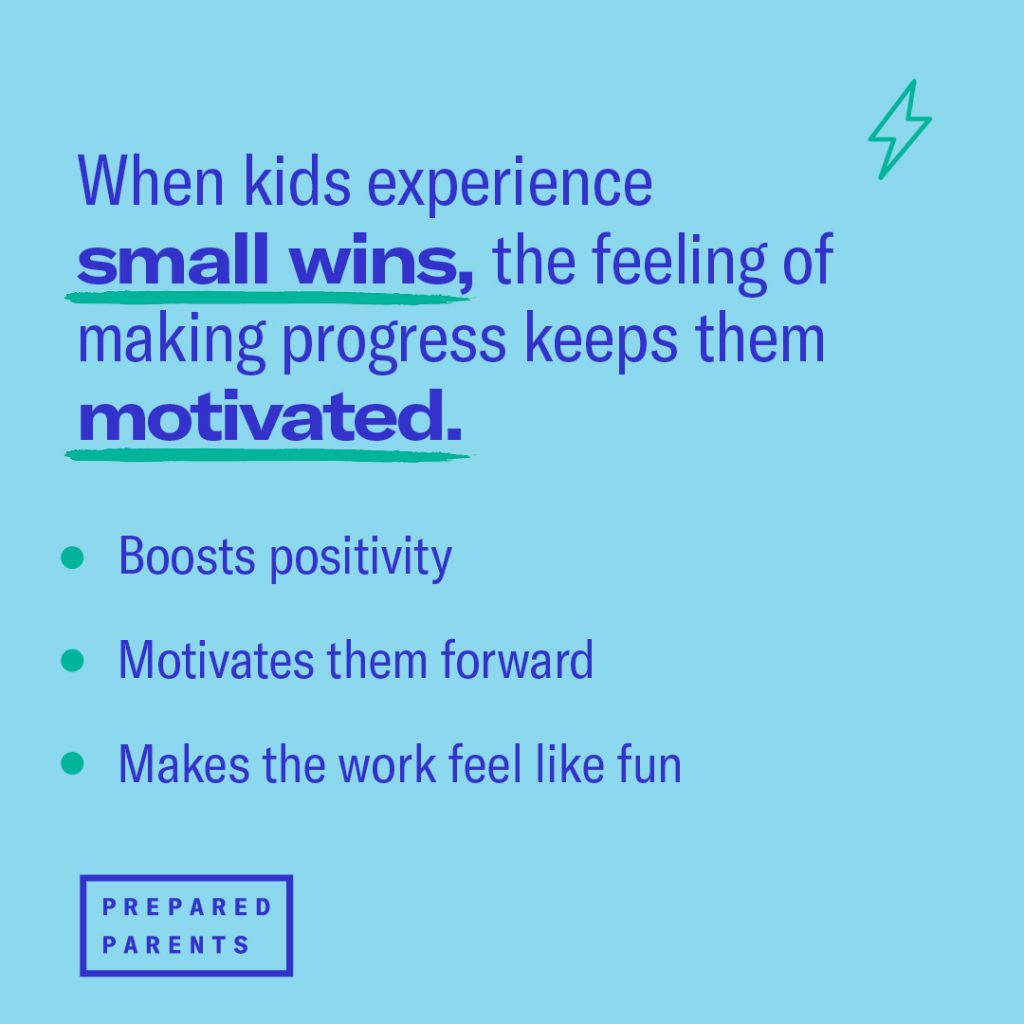We want our kids to dream big, and set big goals. To get there, they need to start by planning small. Afterall, as the Chinese proverb says, the man who removes a mountain begins by carrying away small stones.

Plan small? Yep. That’s what we said. Because when we fixate only on the big goals, we often make the mistake of focusing solely on achievement and ignoring progress. When kids look only toward the big goal and don’t reach it right away, that perceived failure can cause them to doubt their abilities, question those big goals, and ultimately give up altogether.
However, small steps forward are small wins, and small wins add up to big ones. This is the Progress Principle, a theory that suggests that making progress is the key to satisfaction, motivation, and success.
The Progress Principle, a theory proposed by Professors Teresa Amabile and Steven J. Kramer at the Harvard Business School, suggests that making progress in meaningful work is key to boosting a person’s positive emotions, motivating them to move forward, and giving them the perception of accomplishment.
Though tested in the workplace, the same principle can apply to kids. The Progress Principle is embedded in science of how kids connect with what they are learning. When kids experience small wins, the feeling of making progress keeps them motivated; it’s personally rewarding and they like doing it.The key is figuring out how to leverage the Progress Principle to keep the momentum going. It may seem like your kid is giving up or not trying. That’s not because they’re unwilling or lazy. Research reminds us that kids may be giving up learning something not because they are lazy, but because they are not making progress. When kids struggle to pick up a new skill, they misinterpret “this is hard” for “I must not be learning much” and give up.
Encourage kids to set “Tiny Goals” on a regular basis. When kids set goals and accomplish them, they experience the feeling of achievement. In turn, this feeling of making progress is personally rewarding, which gives kids the motivation to keep going.
The activity below gives kids practice setting small, reasonable goals for meaningful tasks. Print the page, or simply have kids write their answers in a planner or on a sticky note. The process is the important part.
It can take less than a minute to think through a task and predict the time needed to complete it—but the rewards can be big: this type of exercise contributes to Executive Function, Academic Tenacity, and Self-Efficacy.

